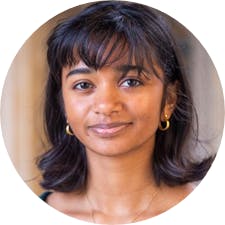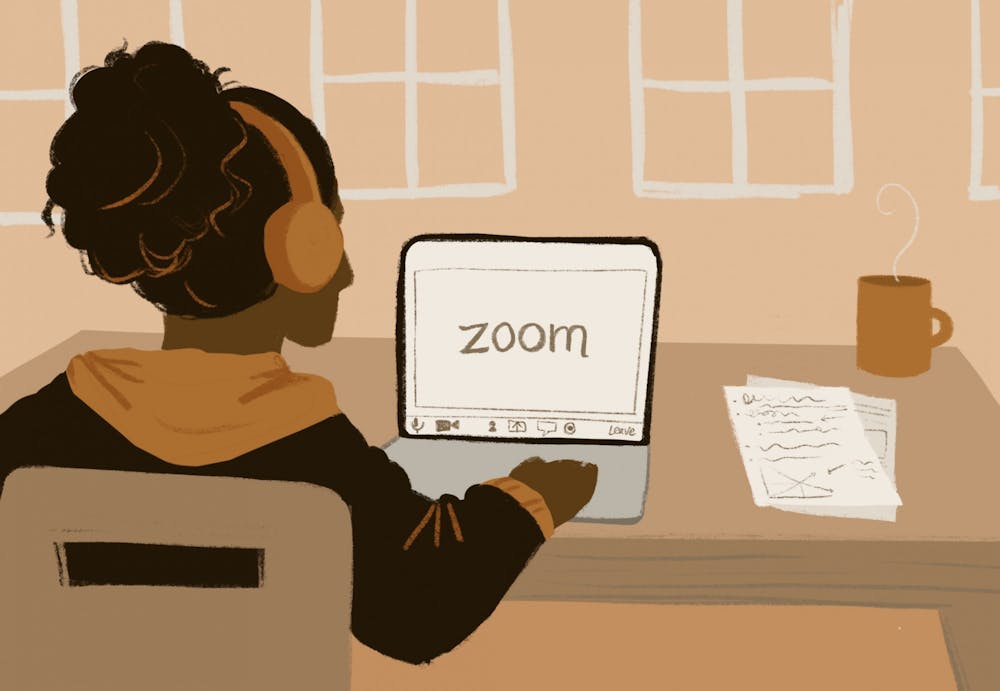In a typical year, the beginning of fall semester is characterized by a mad rush to join various selective clubs and organizations on campus. This year, however, is hardly typical.
Selective clubs choose members through a variety of rush and application processes, many of which usually involve an in-person component. Such processes would violate Duke’s coronavirus safety rules, so leaders of exclusive organizations had to be creative in designing recruitment processes this year.
Sophomore Blade Clarke, vice president of recruitment for the business society Scale and Coin, highlighted the stark contrast between rush last year and this year.
“You’d start out with the info sessions, all in person…And then after that, we’d have volunteering events in person…We’d have other food events in person,” Clarke said, while the group held similar events virtually this year.
Junior Jessie Xu, who is a Duke Impact Investing Group partner, wrote in an email that DIIG typically recruits new students once per semester through a selection process that features information sessions, a written application and an interview.
This year, the group conducted all recruitment efforts virtually. They promoted the organization through social media and hosted information sessions on Zoom.
“We believe there is no reason to risk the safety of our members and prospective DIIG applicants by having in person events. Nor do we disadvantage international and other students not on campus from participating in DIIG,” Xu wrote.
Business Oriented Women followed a similar strategy, hosting 11 virtual events over two weeks to get to know potential applicants, according to the group’s co-presidents, Daisy Fang and Erica Wang.
Events ranged from “'Office Hours with Exec’ to a ‘Diversity & Inclusion Dinner Discussion.’ Social media and especially BOW’s Instagram account has also become a focus of marketing efforts this year in lieu of posting flyers on campus,” Fang and Wang, both seniors, wrote in an email.
This fall’s recruitment processes emphasized diversity and inclusion. Scale and Coin’s diversity panel, BOW’s events introducing club diversity and inclusion efforts, and DIIG’s mandatory implicit bias training for executive board members are examples of ways organizations have aimed to enhance organizational diversity and minimize exclusion and bias.
“We recognize that the makeup of our organization’s membership and leadership both have ways to improve. To address this, we’ve targeted [DIIG] outreach toward minority and BIPOC affinity groups on campus, to ensure these individuals were aware of our application processes,” Xu wrote.
Club leaders reflected that throughout their organization’s recruitment processes, they particularly appreciated moments where current club members were able to connect with new students on a personal level.
“We were able to utilize breakout rooms to help get to know students [one on one],” Fang and Wang wrote. “Trying to create time and space for applicants to get to know members individually can make the process feel more manageable and less intimidating.”
Clarke echoed those sentiments. Virtual coffee chats—an opportunity for rushees to sign up for a 10-to-15 minute conversation with a Scale and Coin member—were “really fruitful,” he said.
“Having this sort of one-on-one interaction was something that really helped throughout the process as well to make sure people knew each other,” Clarke said, adding that the coffee chats will most likely be incorporated into rush permanently.
Wang and Fang wrote that BOW leadership will likely incorporate online components into future operations, but they pointed out that in-person meetings allow “deeper connections” to be built between members.
“We don’t necessarily know how long COVID conditions will persist, so this may end up being the ‘new normal’ for a while!” they wrote. “Zoom has definitely provided more flexibility that we will continue to utilize.”
Xu agreed, noting in particular the informal, spontaneous interactions that aren’t possible in a virtual format.
“Ideally, [DIIG would] like to go back toward the in-person recruiting format. There’s a special way you can connect with someone in person that’s just not possible over Zoom,” she wrote.
The representatives of all three groups noted that the virtual format of the selection processes did not affect the number of applicants in a negative way. Some even noticed an upward trend in recruitment participants.
“I definitely think more kids rushed,” Clarke said. “It’s an easier barrier to entry to just show up for an online thing versus an in person thing.”
DIIG had more applicants this year than ever in the group’s history, Xu wrote, with more than 270 applications. She attributed the 172% increase over last semester to an increased presence on campus.
Get The Chronicle straight to your inbox
Signup for our weekly newsletter. Cancel at any time.

Preetha Ramachandran is a Trinity senior and diversity, equity and inclusion coordinator for The Chronicle's 118th volume. She was previously senior editor for Volume 117.

